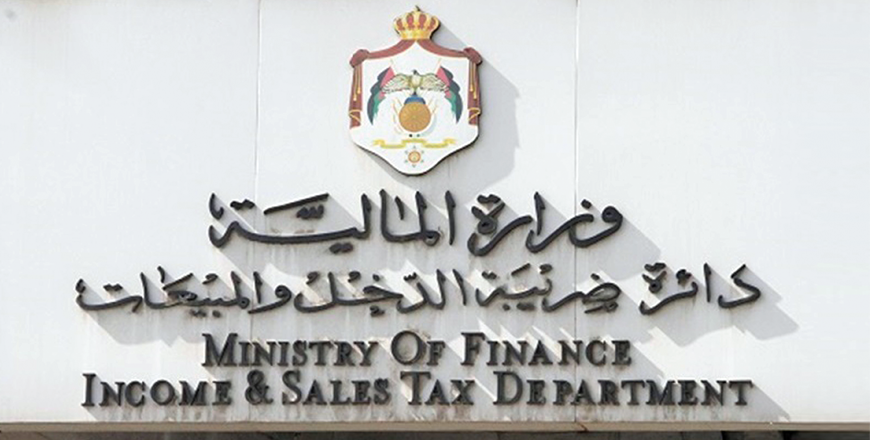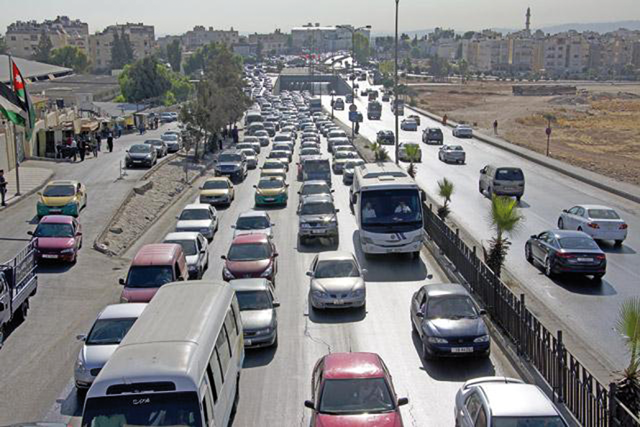You are here
Study calls for progressive tax system
By Rayya Al Muheisen - Mar 22,2023 - Last updated at Mar 22,2023

Representative image (Photo courtesy of unsplash/Towfiqu Barbhuiya)
AMMAN — A good tax system should be progressive, have a positive, non-discriminatory distributional effect, and be aligned with domestic and international investment decisions that promote inclusiveness, encourage good governance and match society’s views on appropriate income and wealth distribution, according to a recent study.
The Economic and Social Council (ESC), in collaboration with the United Nations in Jordan, launched the results of a study on Tuesday titled “Domestic Resource Mobilisation, A Human Rights-Based Approach Tackling Inequalities”.
The study suggests that taxes should not be limited to raising revenue through changing laws and by-laws, but rather should consider longer-term reforms to achieve social justice.
“Jordan should mobilise revenues to cover its Sustainable Development Goals (SDGs) financing needs at pace with economic growth and the realisation of human rights,” the study said.
A fair tax system should be progressive, with real redistributive capacity, and it should ensure equality and non-discrimination, according to the study.
“A robust tax system is characterised by economic efficiency, simplicity, flexibility, political responsibility and fairness,” the study added.
The study noted that economic efficiency refers to a tax system that does not interfere with the efficient allocation of resources, while simplicity means that the tax system is easy and relatively inexpensive to administer. Meanwhile, flexibility indicates that the tax system is able to respond to changes in business cycles and economic shocks. Responsibility describes a tax system designed in such a way that individuals can ascertain what they are paying, and evaluate how accurately the system reflects their preferences. Lastly, fairness refers to a tax system that is fair in its relative treatment of different individuals.
The study called for reviewing and examining the implementation of fiscal legislation, policy and practices for their impact on human rights in Jordan, ensuring transparency and meaningful participation in implementation processes.
Additionally, the study called for linking revenue collection on public goods with increased service delivery by the government. This would include increased public investments in education, health, water and sanitation, food security and climate mitigation measures, and raising awareness of such expenditures — all of which will enhance the willingness of the public to pay taxes, according to the study.
The study also called for considering increasing the tax burden on specific groups of people, particularly the high-income group, to maximise revenues without a disproportionate negative impact on people living in a vulnerable situation.
In this vein, the study recommended the government to “review existing tax rates and tax agreements, especially those on luxury goods”.
Economist Hosam Ayesh told The Jordan Times that we must “humanise” the tax system, and take social, financial and human needs and inequalities into consideration.
“The majority of taxes paid in Jordan are indirect taxes,” Ayesh noted.
The overall tax burden on Jordanians equates to 26 per cent of their income, according to Ayesh, who added that this creates a burden on taxpayers, especially in light of the lack of services provided in return.
“High taxes are reflected through Jordanians’ low purchasing power, lack of savings, which affects the economic wheel as a whole, and can ultimately result in an economic recession,” Ayesh said.
“The main gap we find in Jordan is that the middle-class, who are the majority of taxpayers, pay their taxes, but don’t receive services in return,” the economist added.
Ayesh called for a balance between taxes and services provided in return, offering the example of excellent public educational institutions where taxpayers can send their children.
However, Ayesh pointed out that the majority of the middle class send their children to private schools and universities, noting that the same goes for health institutions, as the majority of taxpayers go to private hospitals and health centres.
“Imposed sales tax doesn’t differentiate between a low-income group and a high-income group. Therefore, the least we can do is to ease the low-income group’s income tax,” Ayesh added.
As an economist, Ayesh called for a more inclusive, fair and targeted tax system, or a fair tax system that serves the interest of all income groups.
“I think that the sales tax system is biased towards the higher-income category,” Ayesh said.
Meanwhile, economist Wajdi Makhamreh seconded Ayesh’s opinion, and likewise called for an inclusive, fair, responsible and adaptable tax system.
“There’s an urgent need to enhance accountability and transparency in the tax revenue allocation,” Makhamreh told The Jordan Times.
Makhamreh urged authorities to extend their efforts in addressing and combating tax evasion.
“Authorities are also urged to go after unofficial businesses and collect taxes from them,” Makhamreh added.
Related Articles
AMMAN — The Phenix Centre for Economics and Informatics Studies on Saturday issued a policy paper criticising the tax system in Jordan, labe
AMMAN — The Income and Sales Tax Department's utilisation of artificial intelligence in electronic tax auditing is playing a pivotal role in
AMMAN — While toll roads can provide an additional revenue stream for infrastructure development, careful consideration must be given


















